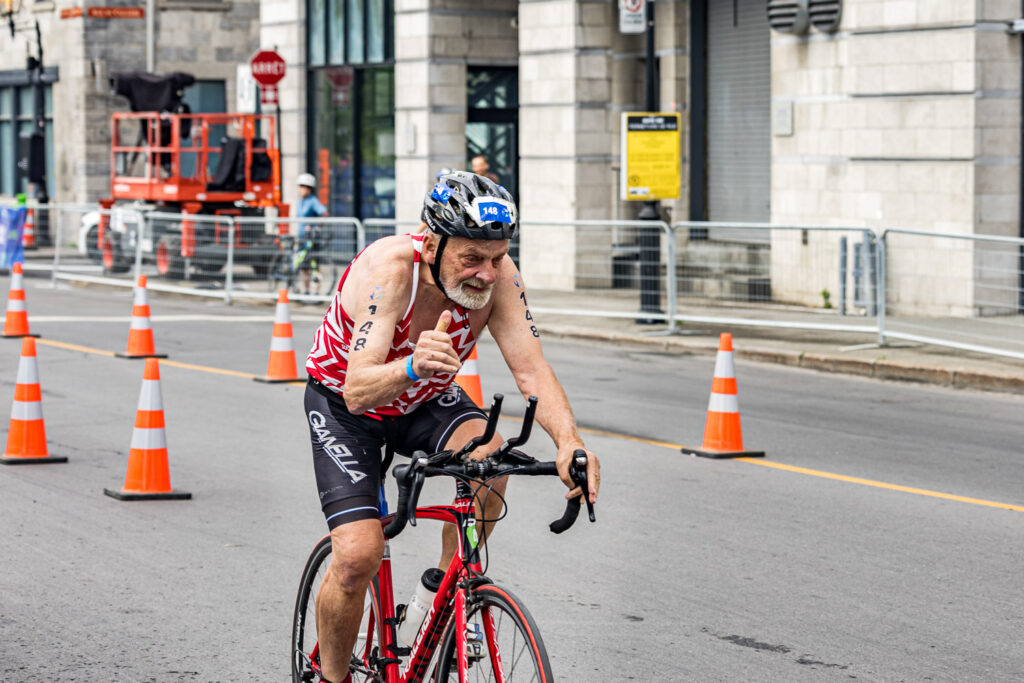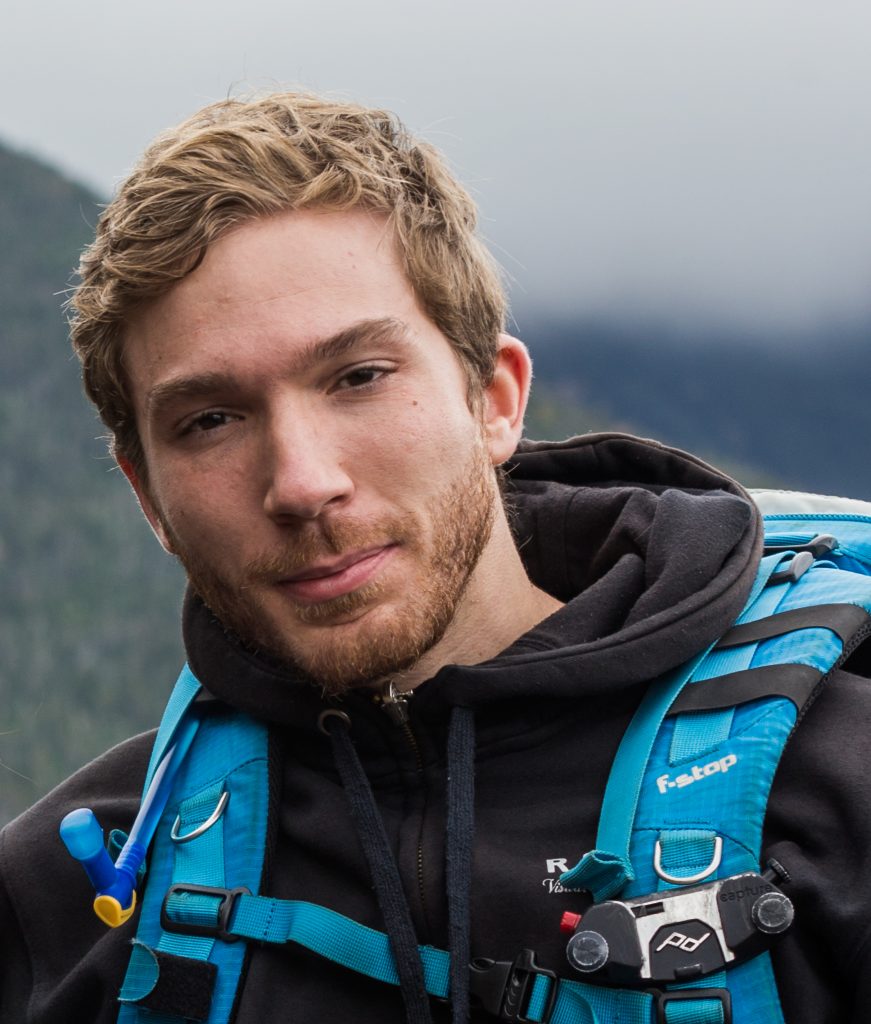In June 2023 I did my first Sprint Triathlon. To be more precise, I had a bit of last-minute training and registered two weeks before the race. This isn't exactly ideal for someone like me who's never trained for a triathlon, hadn't swum in 5 years and very rarely cycles. Fortunately, my training for the Montreal Marathon left me with running as a hope of catching up and making the event less difficult.
Here's a quick summary of how it went, before, during and after. More to come on my tips for not suffering as much as I did in your first triathlon.
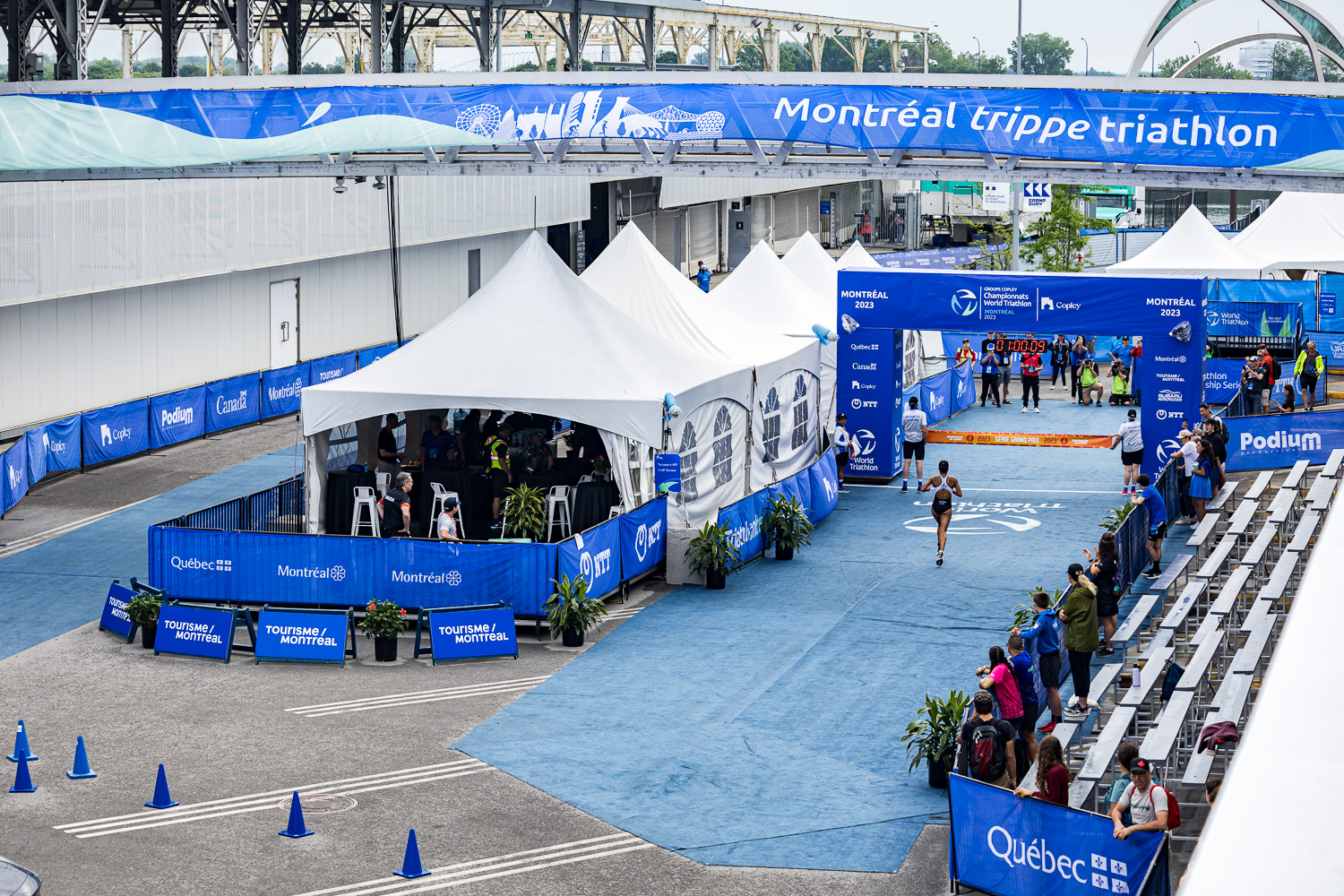
Before
To do your first Sprint Triathlon (or half-triathlon), we often recommend an 8-10 week training program with 3-4 workouts per week. In my case, having only registered two weeks before, the classic training plan was a bit compromised.
I wouldn't recommend signing up for a two-week race if you haven't done any sport in the last year. You'll just end up suffering during the race, having no fun and, above all, injuring yourself.
I'm not completely crazy, I'm currently very active, I've been following a training plan for mountaineering for 4 months, for my travel to Peru. At the same time, I'm slowly starting to train for the Montreal marathon and run between 30 and 50 km a week. And I continue to climb when there's time.
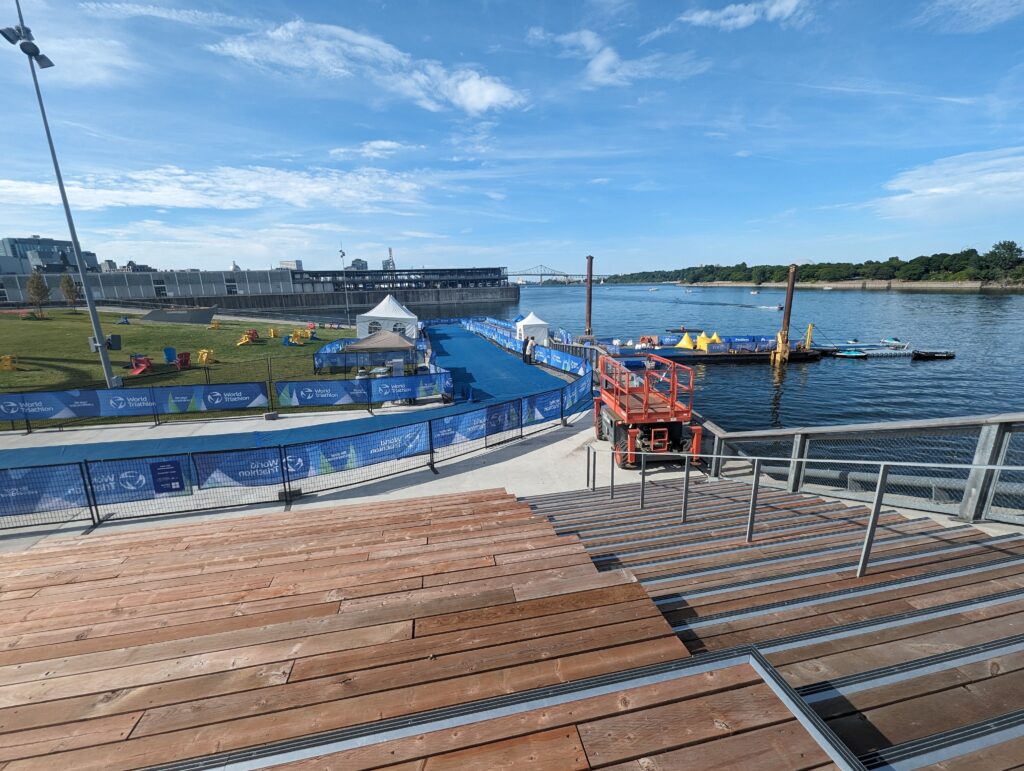
If I wasn't in good shape, I wouldn't have signed up for the race. That's also why I signed up so late, because I didn't want the race to jeopardize my mountaineering trip to Peru, which starts on July 1.
Despite my good form, triathlon involves specific sports, and even though I was in good shape to do the 5km run, I didn't intend to arrive with my hands in my pockets, so I tried to do my best to prepare for the bike and swim. I wasn't going to arrive with my hands in my pockets, so I tried to do my best to prepare for the bike and swim.
The bike
As for the bike, I was relatively confident, wrongly so, as I'd already done one or two rides around the 40km mark in recent years. But I still had to train a bit before the race.
I started riding a bixi to get back on the bike, and was able to do 6-8 times over a distance of around 5km. Better than nothing, but far from ideal. Firstly, because a bixi is far from being a good bike, but it's not the bike I'll have on race day either.
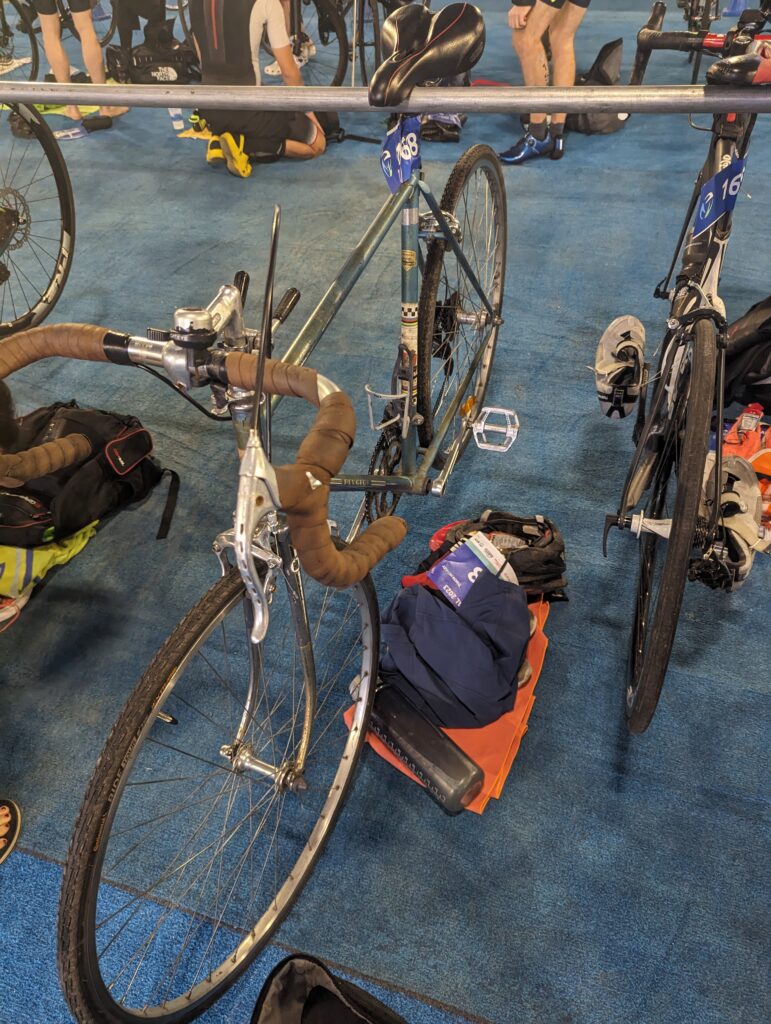
Speaking of which, my second problem was that I had to find a bike for the race, as my current bike didn't comply with Triathlon Québec rules.
I went round my friends and Rémi kindly lent me his the day before the race. Don't do that either, as you'll see during the race, it's important to know your bike a little and be comfortable on it on race day.
Swimming
We also swam twice between my registration and race day. The first was in the pool, where I swam just over a kilometer. And a second time in open water, in a lake, where I swam around 700 metres without a break.
The aim was to see what it would be like to swim 750m. I was very happy to have done at least one session in open water. I'd hardly ever done one, and it's really more different from swimming in a pool. And again, in the lake where we swam, we stayed doing laps in an area where we had foothold. It may be a detail, but in reality having a foothold and being able to stop at any time is easier on the mind than struggling through a race in the middle of a space where you just can't stop.
In the end, training went well for the swim, but clearly I should have done more.
Race day
Race day is here. I'm going to tell you a little bit about how I experienced my race, event by event.
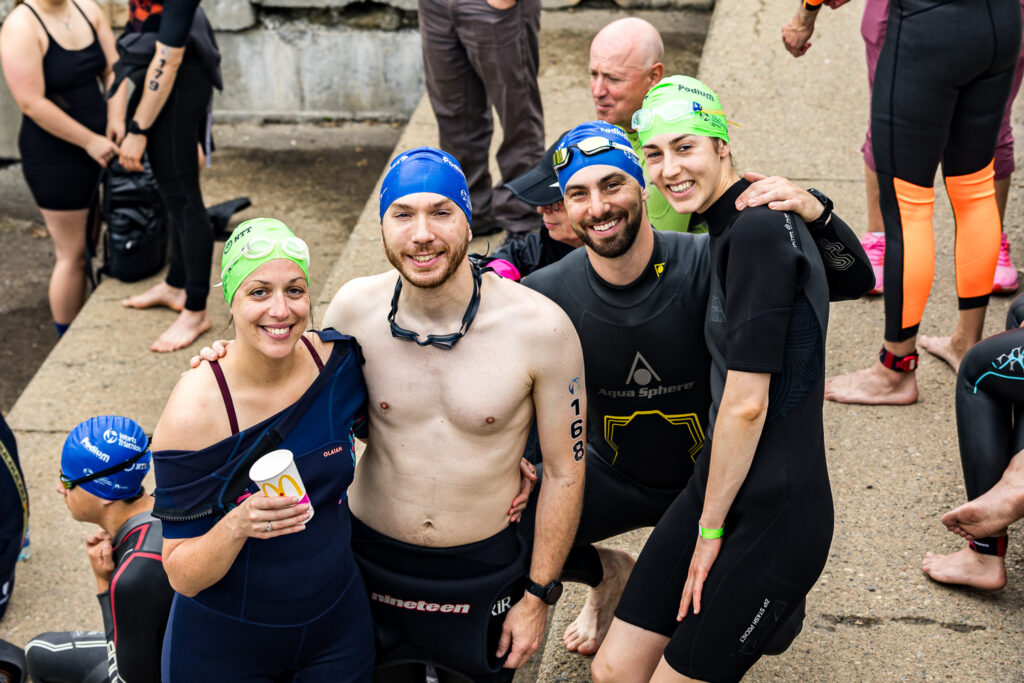
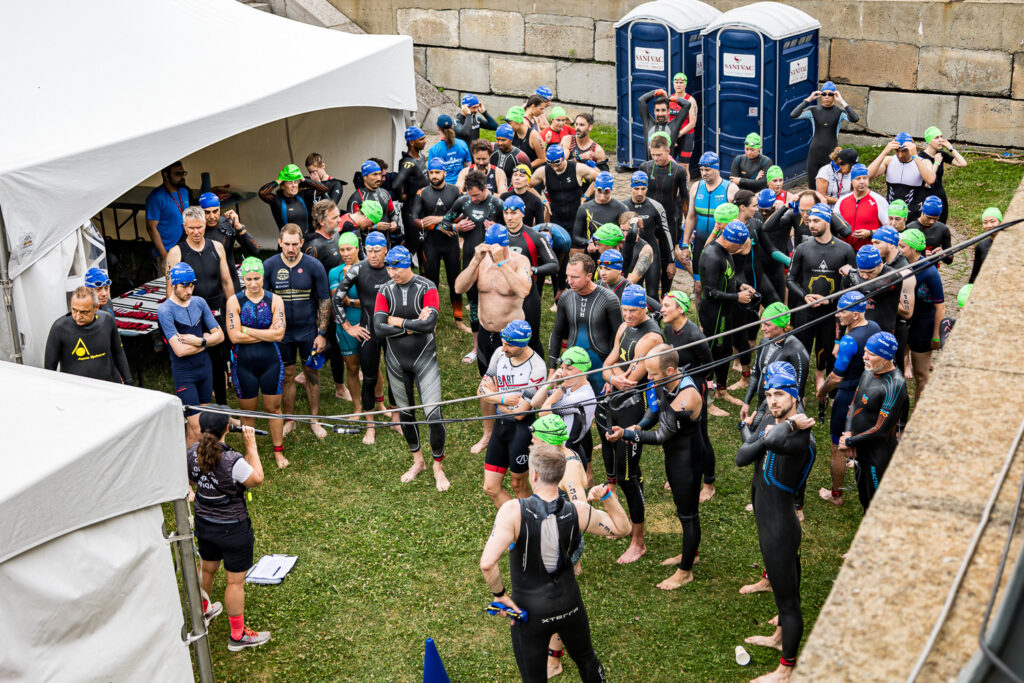
Swimming
The first event in a triathlon is the swim. There was inevitably a fair amount of stress, as there is before every race start. But even more so, because I was starting with what I consider to be the most difficult event. And we were going to swim in the St. Lawrence River.
We left straight from the water, and I was reassured when I jumped in that the water was at a very good temperature. I was really afraid it was going to be icy.
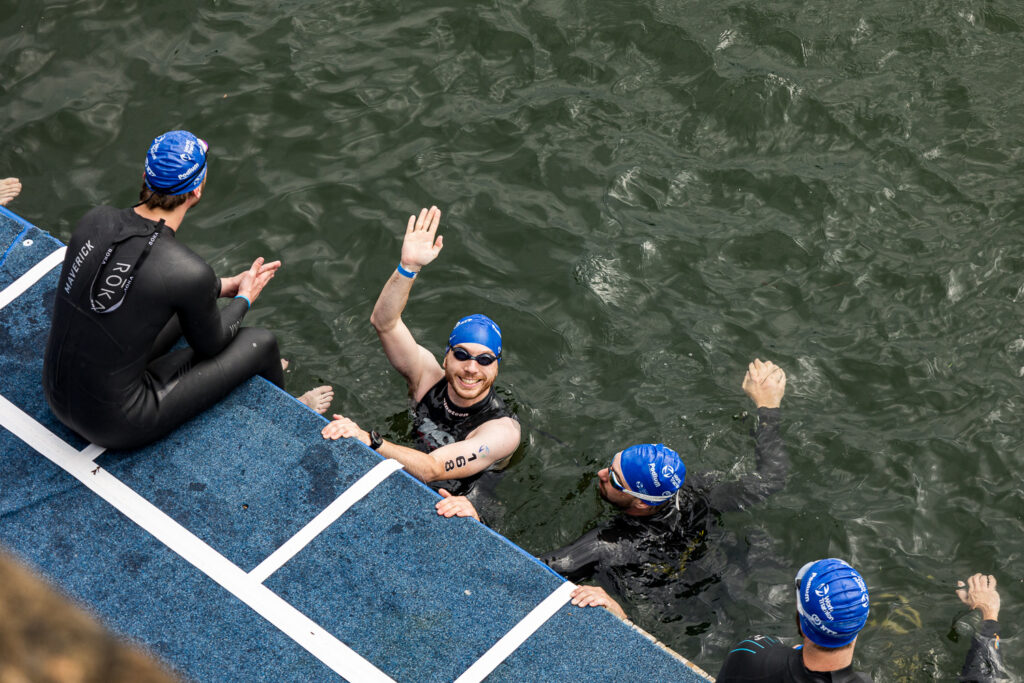
At the start, I launch off like a rocket, feeling great. I soon realize that I'm going way too fast and won't be able to keep up. On top of that, although we're spaced out at the start, everyone's trying to join the fastest trajectory towards the buoy after which we have to turn. As a result, we're all converging on the same point and it's a bit of a mess, with hands and feet banging into people.
I decide to switch to breaststroke to catch my breath and let the faster swimmers go by. I then resume the crawl, but soon find myself out of breath again. I'm clearly not trained enough to maintain a crawl while breathing every three strokes. So I go back to breaststroke.
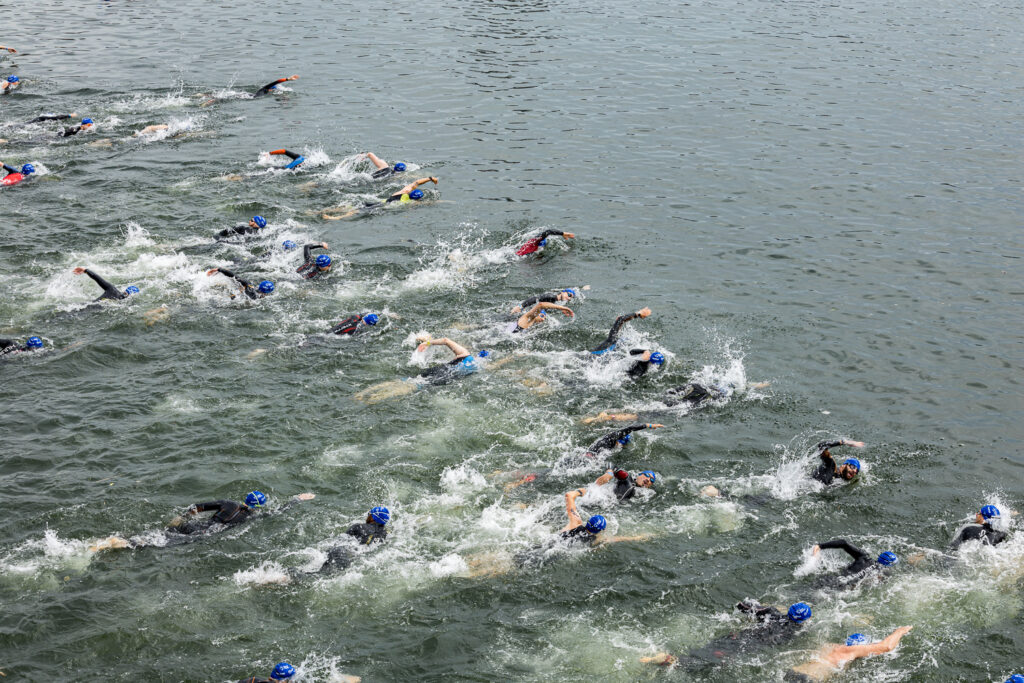
I'm not even halfway through the course and I'm already at the end of my rope, lacking energy, knowing that I'm one of the last and only breaststrokers. I'm thinking of giving up, because I don't think I'll be able to finish the 750m swim. On top of that, I see behind me that the girls, whose start was 2 minutes after us, are starting to close in. I'd like to avoid another chaos in the middle of everyone.
I switch to the crawl on two strokes instead of three. It was the best decision of my race. This is how I reach the buoy. I'm out of breath again and start again with the breaststroke. Even though a number of swimmers have caught up with me, I'm no longer among the last swimmers, and the crawl has been effective.
I pass the second and final buoy, and it's the home stretch. I crawl all the way to the end.
I get out of the water and start my transition to the bike.
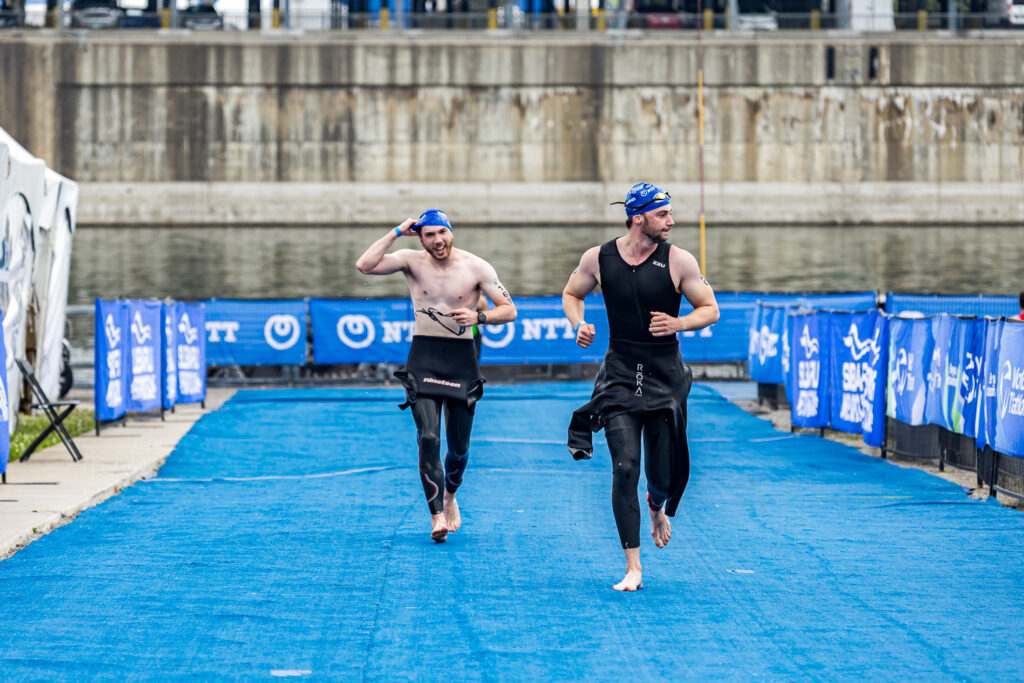
The bike
The hundred or so metres between the end of the swim and the bikes is a run, but a very, very slow one. I'm still out of breath. I take the time to rest for 2-3 minutes next to my bike before setting off. Clearly not recommended if you're looking for performance, but I needed it. In the end, I spend almost 5 minutes 47 seconds in transition.
I'm going by bike, which isn't my favorite thing to do, but at least I think it's going to be more relaxing than swimming. Yes, it's easier than swimming, but far from relaxing. The course is made up of several climbs that will require a lot of effort on my bike, which I can't control very well.
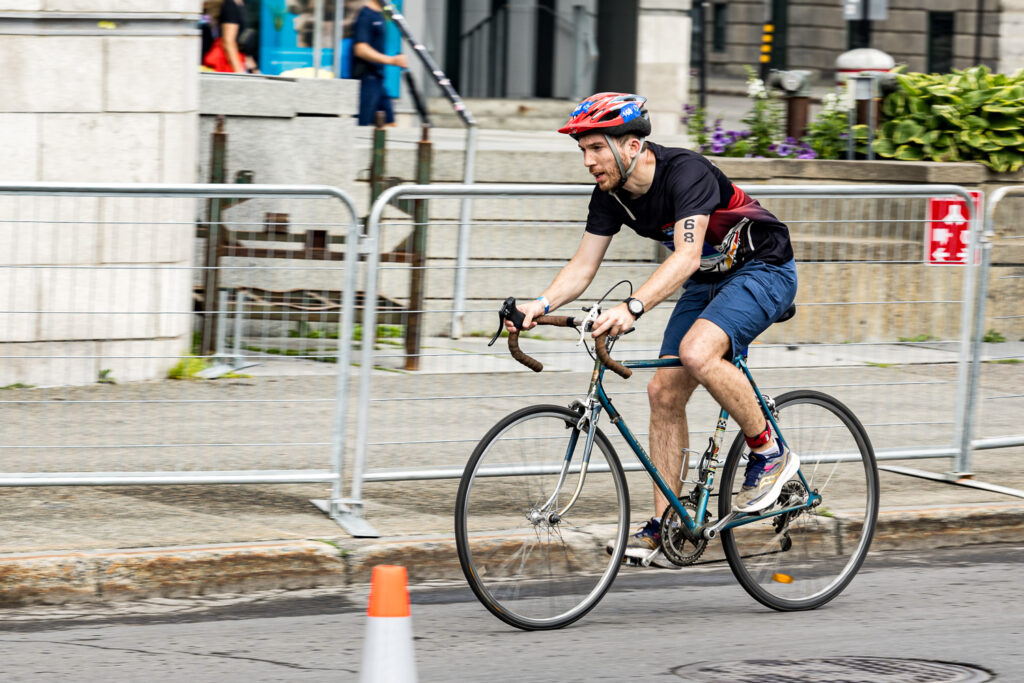
But the worst are the 180-degree turns. Several times, I almost fall in the latter and am forced to slow down to a crawl. I find myself almost at a standstill on certain sections.
The event consists of 5 laps of the same course. It's not really a scenario I like. It feels like it's never going to end. But on the other hand, it allows me to get to grips with the different sections and I end up with a better rhythm on the last few laps. I can't wait to start the race.
Running
I get back on the bike and make a better transition than the previous one, 2 minutes and 12 seconds. And my spirits are high, I'm in my element - running.
However, I soon became disillusioned, as I was unable to run at the pace I'd set myself. I didn't think the swimming and cycling would take their toll.
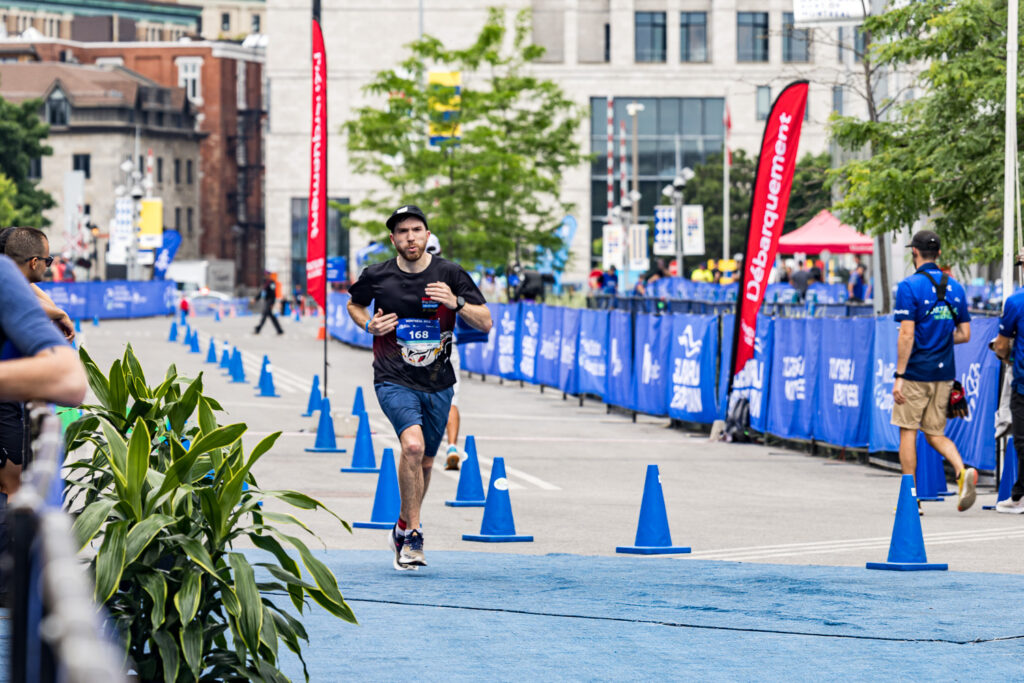
No problem, I'm used to that, I just slow down my pace to get comfortable. The rest is rather quiet for me, I finish the race with a short sprint.
Crossing the finish line is a real pleasure.
After
In the end, I felt fine after the race. The swim drained my energy, but I adapted to the other events so as not to end up totally burnt out.
I think I could clearly have given more of myself during the race, but my aim was to finish, not to perform. And I absolutely wanted to avoid injury so as not to risk ruining my trip to Peru which was to follow.
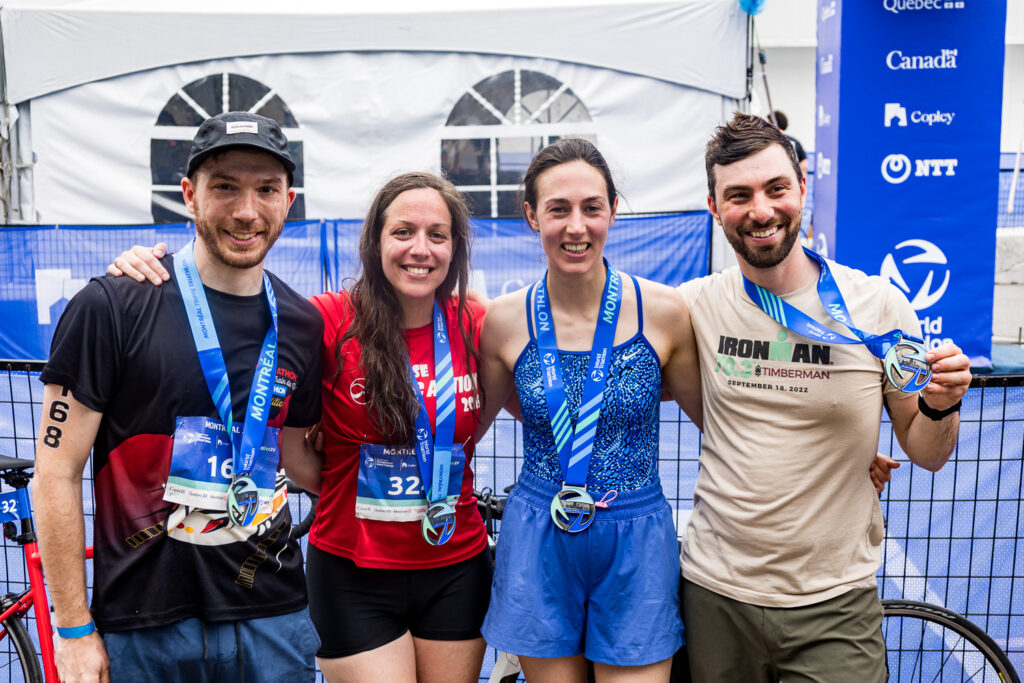
I was even able to go running four days later without any problems, for a quiet 8km.
This is probably the advantage of a triathlon over a marathon. The fact that the sports are varied means that the race requires energy, but is much less traumatic for certain movements. Whether I'd say the same for a full triathlon remains to be seen.
In any case, it was an experience I really enjoyed. And I'd be curious to do a full one or a half again. But this time I'll take at least 2-3 months to train. I think that will make the event much more enjoyable.
Conclusion
An article will be coming soon with my advice if you want to embark on your first triathlon. But to sum up: train, don't take it lightly, or you risk injury. Don't hesitate to slow down. And you don't need to have crazy equipment, renting, borrowing or buying second-hand won't help you finish your race.
Finally, thanks to my parents who supported us during the race and took the photos. Thanks to my girlfriend Marie-Pier's parents for coming along to support us. And thanks to Marie-Pier, Marie-Noëlle and Marc-André, who dragged me through this crazy ordeal.
See you soon for new challenges.
Bonus :
My greatest inspiration on this race, Udo a man of 80/84 years old (I only know his age category), who finished the race in 2 h 2 (from memory). The maximum time was 2 h, but they let him finish the race anyway, to the applause of the public.
I ran into him several times during the race and he never gave up. Even at the end of his race, he still found time to make jokes with the cheering crowd.
I found it really inspiring, there's no age limit for challenges.
Thank you, Udo.
